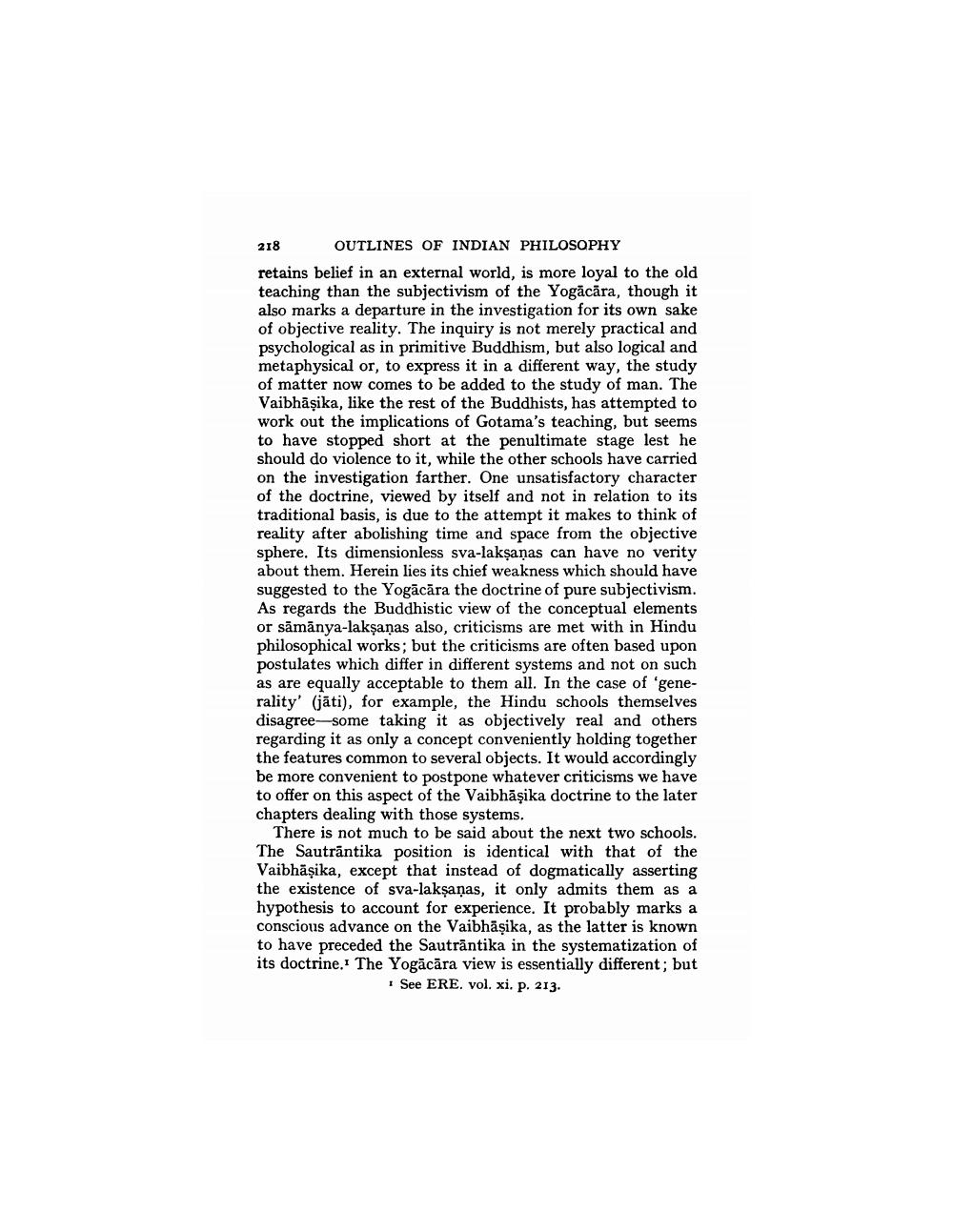________________
218
OUTLINES OF INDIAN PHILOSOPHY
retains belief in an external world, is more loyal to the old teaching than the subjectivism of the Yogacara, though it also marks a departure in the investigation for its own sake of objective reality. The inquiry is not merely practical and psychological as in primitive Buddhism, but also logical and metaphysical or, to express it in a different way, the study of matter now comes to be added to the study of man. The Vaibhāṣika, like the rest of the Buddhists, has attempted to work out the implications of Gotama's teaching, but seems to have stopped short at the penultimate stage lest he should do violence to it, while the other schools have carried on the investigation farther. One unsatisfactory character of the doctrine, viewed by itself and not in relation to its traditional basis, is due to the attempt it makes to think of reality after abolishing time and space from the objective sphere. Its dimensionless sva-lakṣaṇas can have no verity about them. Herein lies its chief weakness which should have suggested to the Yogacara the doctrine of pure subjectivism. As regards the Buddhistic view of the conceptual elements or sāmānya-lakṣaṇas also, criticisms are met with in Hindu philosophical works; but the criticisms are often based upon postulates which differ in different systems and not on such as are equally acceptable to them all. In the case of 'generality' (jāti), for example, the Hindu schools themselves disagree some taking it as objectively real and others regarding it as only a concept conveniently holding together the features common to several objects. It would accordingly be more convenient to postpone whatever criticisms we have to offer on this aspect of the Vaibhaşika doctrine to the later chapters dealing with those systems.
There is not much to be said about the next two schools. The Sautrāntika position is identical with that of the Vaibhāṣika, except that instead of dogmatically asserting the existence of sva-lakṣaṇas, it only admits them as a hypothesis to account for experience. It probably marks a conscious advance on the Vaibhāṣika, as the latter is known to have preceded the Sautrāntika in the systematization of its doctrine. The Yogacara view is essentially different; but I See ERE. vol. xi. p. 213.




